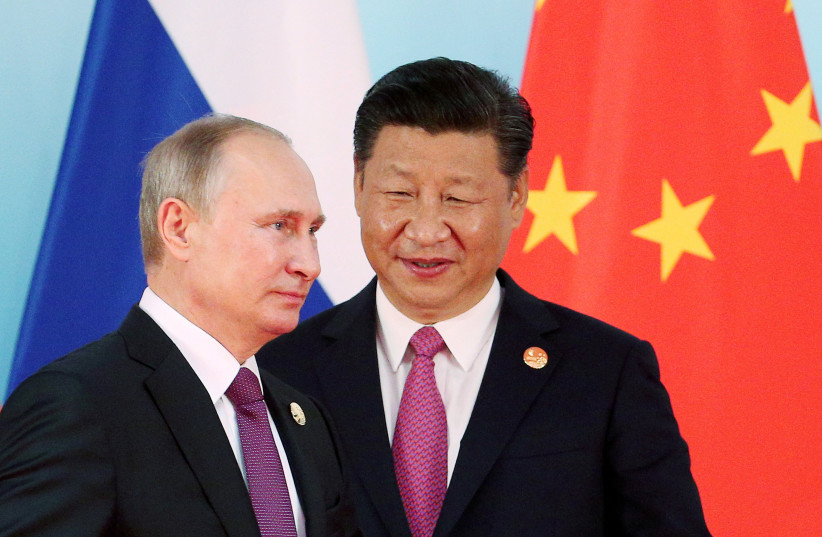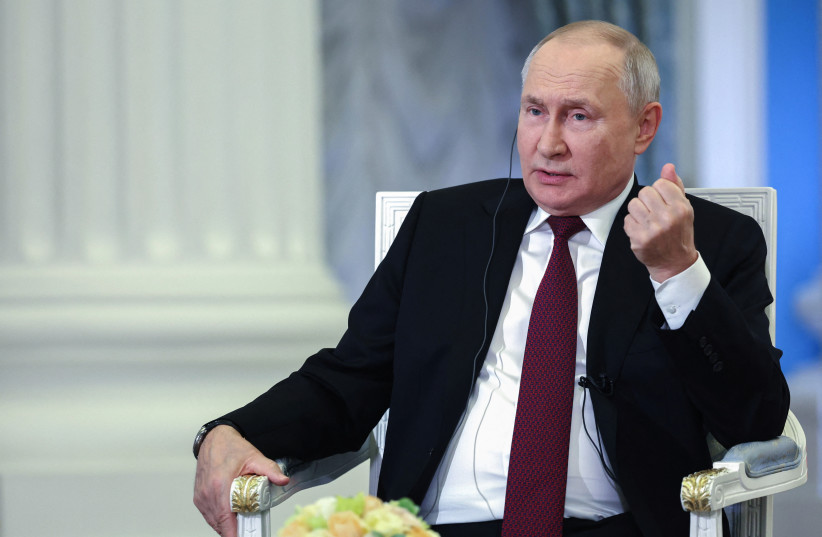by Seth J. Frantzman
Despite years of favorable Israeli foreign policy, both Beijing and Moscow are now openly hostile to Israel.
 |
While the US retains extra focus on the Middle East this week, and Israel considers when to initiate its ground incursion into Gaza, Russia and China are holding talks.
The talks between two major global and regional players should not go unnoticed at this time, as both have been critical of Israel’s response to Hamas.
Russian Foreign Minister Sergey Lavrov arrived in the Chinese capital on Monday, beginning his visit to China, which will host its third Belt and Road international forum, according to Russian state media TASS.
Iran seeking to unify fronts against Israel
Despite years in which Israeli foreign policy attempted to cultivate relations with China and Russia, or at least encourage a balanced view of the conflict in Beijing and Moscow, both are now openly hostile to Israel and Hamas has praised Russia’s view of the current situation.
They are also both close to Iran, which has been seeking for months to unify its various fronts against Israel. That poses a challenge to Israel’s long-term strategy, and it also comes amid reports that Egypt may host a meeting of countries to discuss Gaza; it is unclear if Israel will be invited.


That means while the US has been as supportive as ever, it could leave Israel in a vulnerable place in its own corner of the world, setting back years of progress in the region.
How has this happened?
The terrorist attack has emboldened Israel’s enemies. Iran, in particular, has sought to shift the chaos in the region from Syria and Iraq to Israel’s borders, which means proxies.
Israel, which once defeated whole countries in 1973 and 1967, is now facing a potential multifront war against terrorist armies. It appears to be an uphill struggle, and Iran, China, and Russia are all watching it unfold.
So is the US, which has sent Secretary of State Antony Blinken to shuttle around the region. Israel’s policy of avoiding the chaos that followed the Arab Spring is now coming up against the multi-polar world order.
Russian President Vladimir Putin “confirmed his plan to attend the [Belt and Road] forum,” TASS reported. “While in Beijing, Lavrov is expected to hold talks with China’s top diplomat, Wang Yi. Hungarian Foreign Minister Peter Szijjarto, too, said he was ready to meet with his Russian counterpart. He told TASS he expected to discuss the Palestine-Israel conflict with Lavrov.”
“The Belt and Road initiative was proposed by Xi Jinping in 2013 to boost economic and trade investment projects involving as many countries as possible,” the report said. “More than 150 countries and over 30 international organizations have already joined it. China’s third Belt and Road Forum will take place in Beijing on October 17.”
China and Russia both have their eye on expanding into the Middle East in other capacities, such as BRICS and the SCO, to cultivate countries in the region. These organizations also exclude Israel. As such, the meeting in China, amid the war with Hamas, holds larger regional ramifications.
Seth J. Frantzman
Source: https://www.jpost.com/international/article-768568
No comments:
Post a Comment